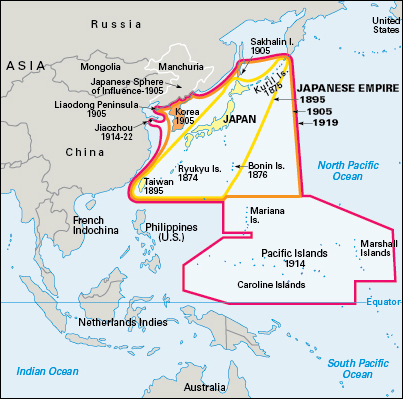Sino-Japanese War of 1894-1895 was a conflict between China and Japan over control of Korea. For hundreds of years, Korea had been a tributary state of China, which meant that Korea had to submit tribute (payments) to China. In exchange, Korea received access to Chinese goods and some military protection. In 1894, when a rebellion broke out in Korea, China sent troops to end the uprising. Japan also sent troops to protect its growing interests in Korea. The rebellion was crushed, but Japan refused to withdraw its troops.
Fighting broke out between China and Japan in July 1894. Japanese forces destroyed the Chinese Navy, and Japan’s army advanced through Korea into China and took several Chinese cities. The war ended on April 17, 1895, with the Treaty of Shimonoseki. The treaty granted independence to Korea and gave Japan the Liaodong Peninsula in northeastern China and the island of Taiwan. The Chinese also agreed to pay Japan about $150 million and allow the Japanese to run factories in China. But Russia, Germany, and France quickly forced Japan to return Liaodong and accept an additional payment from China instead.

The war weakened China and opened the country to greater foreign influence. It also sowed the seed of the Russo-Japanese War (1904-1905), which Japan won (see Russo-Japanese War). In 1910, Japan annexed Korea.
